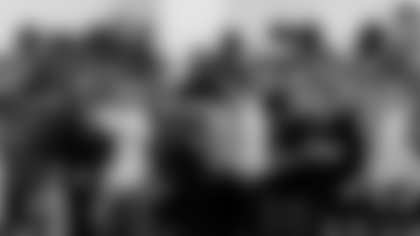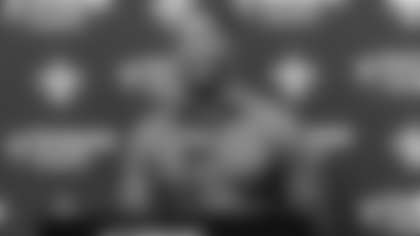It's problematic enough that the Los Angeles Rams have an exponentially improved offense and quarterback-harassing defense. Add to those units a "special" special teams unit, and the New Orleans Saints (8-2) understand the job it will be to win their ninth consecutive game Sunday, against the Rams at L.A. Memorial Coliseum.
First, the Rams have one of the best kick returners in the league. Receiver Pharoh Cooper is averaging 30.2 yards on 20 kickoff returns, and has a 103-yard touchdown, and also averages 10.4 yards on 14 punt returns.
Kicker Greg Zuerlein has made 28 of 29 field-goal attempts, and routinely produces touchbacks on his kickoffs. And punter Johnny Hekker is one of the best in NFL history.
Since 1976, Hekker has the highest net punting average in a season (46, on 98 punts in 2016) and has three of the top six such seasons, including when he tied for second (44.2 in 2013). Since the NFL began tracking punts inside the 20 in '76, Hekker is first player to lead league in gross average, net average and punts placed inside the 20 in the same season (in '16). Opponents only have 67 punt return yards vs. Rams this season.
"They do a lot of good things in the kicking game," Saints Coach Sean Payton said Friday. "Their punt team is always near the top, they have a punter that's been a quarterback so they've been very aggressive with fake passes, fake kicks – they've got the gambit.
"So you've really got to pay attention to your punt return unit. They had the long kickoff return for a touchdown against Jacksonville. (Rams special teams coordinator) John Fassel does a fantastic job. They cause you a lot of issues and the return game is part of it."
The return game is a significant part of it, one that the Saints will try to contain. Cooper will attempt to emulate Detroit's Jamal Agnew, whose 74-yard punt return for a touchdown highlighted a four-return, 106-yard day.
But Cooper's best success has been as a kick returner. He leads the league in kickoff return yards at 603.
"The first thing you notice is the guys that are blocking for him," said Saints safety Chris Banjo, who'll be part of the units attempting to surround and tackle Cooper. "You can tell they all believe in everything they're doing and they're trying to do it at a high level. And then when you mix that in with his abilities, it makes it difficult to defend against. But we've just got to come ready, stick to what we know, what we're capable of doing and we should come out good.
"We believe in our abilities. We just have to come together and play collectively as a unit. Communicate, and we should be fine."
Kicker Wil Lutz said the Saints will use an approach similar to ones they've used all season.
"When you have a dangerous returner like that, of course, you never want the ball in his hands," Lutz said. "But if they want to bring it out from nine (yards) deep, I've got to trust my coverage to help me out a little bit.
"I know that if I go out and hit my kickoff, that we'll be all right. It's kind of a judgment call for him, what he want to. But it's kind of the same approach regardless of the returner."
The Saints also will attempt to see if they can crack a return against the Rams. Receiver Tommylee Lewis made his first appearance as a punt returner against Washington on Sunday, and returned two punts for 38 yards. He replaced Ted Ginn Jr. as the primary returner.
Lewis, who also had three kickoff returns for 62 yards against Washington – and has returned seven kickoffs for a 23.1-yard average this season – had a critical 14-yard punt return in overtime against Washington.
The Saints were aggressive in their return approach in their first game under new special teams coordinator Mike Westhoff, a 30-year NFL coach who retired in 2012, but said he returned because he believes the Saints are a special team, capable of advancing to the Super Bowl.
"We've got some wrinkles," Payton said. (Westhoff has) got a wealth of experience and is someone that is adding to our group. So we'll continue to look at what we're doing.
"I thought last week, the punt return in overtime, if you're not watching or paying close attention, was significant. Because all of a sudden we start with the ball close to the 40, instead of backed up. That's the hidden yardage that we're talking about."














